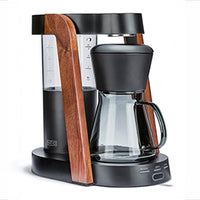A Beginner’s Guide to Frequently Asked Questions About Coffee
Coffee is more than just a drink; it is a ritual, a passion, and for many, a daily necessity. As the popularity of coffee grows, so does the number of questions surrounding its brewing techniques, varieties, and health implications. This guide aims to address the frequently asked questions about coffee, providing insights into common myths and offering practical coffee brewing tips to enhance your experience.
Understanding Coffee Basics
What is Coffee?
Coffee is a brewed beverage prepared from roasted coffee beans, which are the seeds of berries from the Coffee plant. The process involves several steps, including harvesting, processing, roasting, and brewing. Each step significantly impacts the flavor profile and quality of the final cup. Understanding these basics can help coffee enthusiasts appreciate the nuances in flavor and aroma that different brewing methods and bean types offer.
Types of Coffee Beans
There are four primary types of coffee beans, each with distinct characteristics:
-
Arabica: Known for its sweet, soft taste and higher acidity, Arabica beans are often regarded as superior in quality.
-
Robusta: These beans have a stronger, more bitter flavor and contain more caffeine than Arabica. They are often used in espresso blends.
-
Liberica: Less common, Liberica beans have a unique flavor profile with floral and fruity notes.
-
Excelsa: Often used for blending, Excelsa beans provide a tart and fruity flavor, contributing to a complex cup.
Understanding the differences between these bean types can guide your purchasing decisions and brewing methods.
Frequently Asked Questions About Coffee
How Should I Store Coffee?
Proper storage of coffee is crucial to maintain its freshness and flavor. Here are some best practices:
-
Keep coffee beans in an airtight container to prevent exposure to air, which can lead to oxidation and staleness.
-
Store the container in a cool, dark place, away from direct sunlight and heat sources.
-
Avoid refrigerating or freezing coffee, as moisture can negatively affect the flavor.
How Much Coffee Should I Use?
The ideal coffee-to-water ratio can vary based on personal preference, but a general guideline is:
-
Use one to two tablespoons of ground coffee for every six ounces of water.
-
Experiment with the ratio to find the strength that suits your taste.
What is the Best Brewing Method?
There are numerous brewing methods, each producing different flavor profiles. Here are some popular techniques:
-
Drip Coffee Maker: Convenient and popular for home use, it brews coffee by dripping hot water over ground coffee.
-
French Press: This method allows coffee grounds to steep in hot water, resulting in a full-bodied flavor.
-
Pour-Over: A manual method that gives you control over the brewing time and water temperature, enhancing the flavor.
-
Espresso Machine: Produces a concentrated coffee shot, often used as a base for various coffee drinks like lattes and cappuccinos.
Choosing the right brewing method depends on your taste preferences and the time you want to invest in making coffee.

Common Myths About Coffee Brewing Debunked
As coffee culture continues to thrive, several myths have emerged that can mislead enthusiasts. Here are some prevalent misconceptions:
Myth 1: Dark Roast Coffee is Stronger
Many believe that dark roast coffee contains more caffeine than lighter roasts. In reality, the roasting process reduces caffeine content slightly. Light roasts often have a higher caffeine concentration, though the difference is minimal. The perception of strength often comes from the bolder flavor of dark roasts rather than caffeine content.
Myth 2: Coffee is Dehydrating
While coffee does have a mild diuretic effect, studies show that moderate coffee consumption does not lead to dehydration. The liquid content in coffee contributes to overall hydration levels.
Myth 3: You Should Use Boiling Water for Brewing
Using boiling water can scald coffee grounds and lead to a bitter taste. The optimal brewing temperature is between 195°F to 205°F. Allowing boiling water to cool for about 30 seconds before pouring over the coffee can yield a better flavor.
Coffee Brewing Tips for Beginners
For those new to brewing coffee, here are essential tips to ensure a great cup every time:
-
Use Fresh Beans: Always opt for freshly roasted beans, ideally used within two weeks of roasting for maximum flavor.
-
Grind Just Before Brewing: Grinding coffee just before brewing preserves the aromatic oils and freshness, enhancing the overall taste.
-
Invest in Quality Equipment: While it’s possible to brew coffee with minimal equipment, investing in a good grinder and brewer can significantly improve your coffee experience.
-
Experiment with Water Quality: The quality of water used in brewing can affect the taste. Use filtered or bottled water for the best results.
-
Clean Your Equipment Regularly: Coffee oils and residue can build up in brewing equipment, affecting flavor. Regular cleaning ensures a pure coffee taste.
Elevating Your Coffee Experience with Ratio Coffee
Understanding the frequently asked questions about coffee can significantly enhance your brewing experience. By debunking common myths and following practical tips, you can enjoy a better cup of coffee. Ratio Coffee offers thoughtfully designed brewing equipment that combines aesthetics with functionality, perfect for those who appreciate quality coffee without compromising on convenience.
Visit our website or contact us for more information on how Ratio Coffee can assist you in elevating your coffee experience. Embrace the art of coffee brewing and enjoy every sip with confidence.
 Ratio Eight S2
Ratio Eight S2
 Ratio Eight Original
Ratio Eight Original
 Ratio Six
Ratio Six
 Ratio Four
Ratio Four
 Compare Machines
Compare Machines






